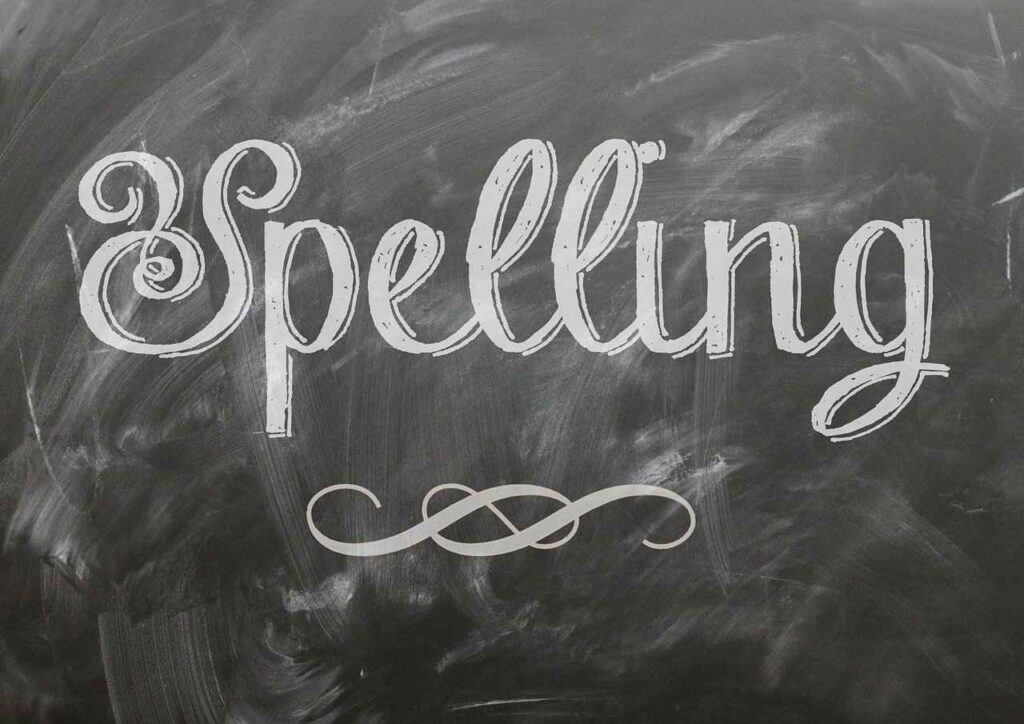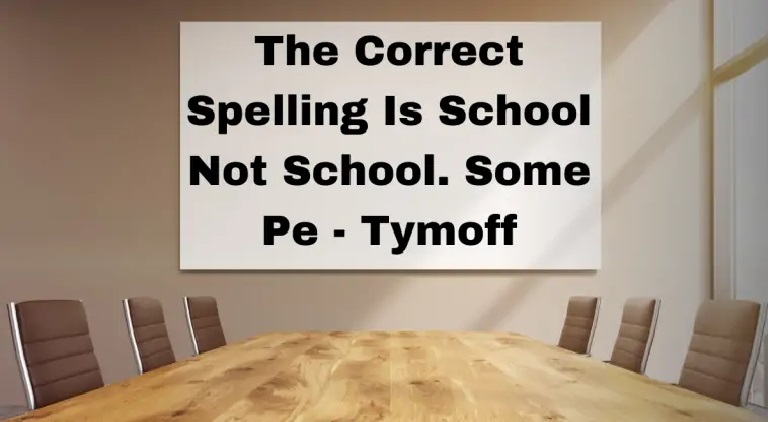Spelling errors are far more common than we’d care to think. Certainly, the most common misspelling is that of the word “school.” It is one of the most basic words learned by any person at the very start of their life, and somehow many people in their adult age still get it wrong.
You might see “shcool” typed out there, something that looks and sounds like simply a typo but really speaks to some of the deeper problems of illiteracy and inattention to detail. It also speaks to an element of cultural shift in how we think about language today. And, of course, the correct spelling is school not school some pe – Tymoff. Now let’s dig a little deeper into what is going on here.
Contents
Why is “School” So Frequently Misspelled?
Why is it that such an innocent word as “school,” learned by children everywhere at such an early age, is still so often misspelled as “shcool”? A number of reasons lead to this problem:
1. Typos: Most writing now is typewritten. Typing on a keyboard tends to write the letters “h” and “c” close together, and in a frenetic attempt to keep up with the word being typed ahead of them, it’s easy to reverse the order of “h” and “c”.
2. Pronunciation vs. Spelling: English is infamous for the complicated relationship between spelling and pronunciation. The word “school” sounds phonetically hard to pronounce for some because the “sch” combination does not appear often in other words in the language. It comes from the Greek word “scholē,” and that once again affects its pronunciation. The correct spelling is school not school. Some pe – Tymoff.
3. Autocorrect-Induced Mistakes: One is highly reliant on autocorrect and spell-checkers. These sometimes fail to detect small spelling errors like “shcool,” much to their disadvantage at times.
The Importance of Spelling in Education

Spelling is one of the pertinent parts of education, for it is the very foundation of literacy. Whether one spells words correctly says much about their language skills and their attention to detail in general. Misspellings like “shcool” are often misleading. In so many instances, they can easily convey wrong information. The correct spelling is school not school some pe – Tymoff.
1. Spelling Skills: It is evident that a person, whether he likes it or not, will be judged based on the spelling mistakes written there. In actuality, bad spelling in formal circumstances, no matter how minor, can harm how others view us.
2. Academic Performance: This is a crucial area where spelling skills are foregrounded early on in education because spelling bears heavily on the correct interpretation of reading and writing, and the ability to communicate. It can lead to problems or difficulties affecting the child’s academic performance, particularly on anything that’s written.
3. Technological Over-reliance: As highlighted above, improvements in autocorrect and spell-check tools have made many individuals overlook the need to pay as much attention to spelling as they would have done before.
Common Misspellings: A Symptom of a Larger Problem?
‘School’ is one of the words that gets misspelled—the same error with many words. It’s not just the problem of people who type too fast or are too dependent on technology—but may perhaps be saying something else about larger social trends too.
1. Less Attention towards Spelling at Educational Centres: Spelling, once considered the most essential part of any educational programme, is slowly fading away in modern education systems. The current curriculums focus on broad skills, and because of this factor, pure grammar and spelling lost their importance.
2. Cultural Change Towards Abbreviations and Slang: Texting, social media, and online communication follow different abbreviations and slang that are dominated by the younger generation and very often do not follow normal spelling rules. Informal language usage is one more factor that contributes to dropping proper spelling habits.
3. Globalization and English as a Second Language: The most widely used second language in the world is English. For a native speaker of a non-English first language, mastering the spelling of English proves difficult because of its many exceptions and irregularities. For example, misspelling words such as “school” commonly results from the difficulty involved in this kind of learning.
The Way Forward

So how do we address this issue? There are a few ways we can promote better spelling practices:
1. Reviving Emphasis on Spelling in Education: Schools should strike a balance between modern educational goals and traditional skills like spelling. Introducing fun spelling games, quizzes, and interactive learning tools could help make the process more engaging for students.
2. Encouraging Personal Responsibility: Individuals, particularly students and young professionals, should take more responsibility for their learning. Proofreading, practising spelling, and paying attention to commonly misspelled words can help reduce these errors.
3. Technological Assistance with a Caution: While tools like spell-check and autocorrect are useful, we should use them as aids rather than replacements for human judgment. Re-reading important documents and taking the time to learn from spelling mistakes can go a long way in improving our language skills.
In a world where technology dominates communication, spelling errors like “shcool” are easy to overlook but they can carry significant consequences. Whether it’s because of fast typing or over-reliance on autocorrect, we all should keep in mind that the correct spelling is school not school. Some pe – Tymoff.



